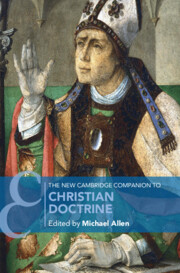Book contents
- The New Cambridge Companion to Christian Doctrine
- Cambridge Companions to Religion
- The New Cambridge Companion to Christian Doctrine
- Copyright page
- Contents
- Contributors
- Preface
- Part I Doctrines
- Part II Movements
- 11 Feminist Theology
- 12 Theological Interpretation of Scripture
- 13 Radical Orthodoxy
- 14 Public Theology
- 15 Disability Theology
- 16 Black Theology
- 17 Pentecostal Theology
- 18 Analytic Theology
- 19 Apocalyptic Theology
- 20 Reformed Catholicity
- 21 Ressourcement Thomism
- Index
- Cambridge Companions to Religion (continued from page iii)
- References
18 - Analytic Theology
from Part II - Movements
Published online by Cambridge University Press: 03 November 2022
- The New Cambridge Companion to Christian Doctrine
- Cambridge Companions to Religion
- The New Cambridge Companion to Christian Doctrine
- Copyright page
- Contents
- Contributors
- Preface
- Part I Doctrines
- Part II Movements
- 11 Feminist Theology
- 12 Theological Interpretation of Scripture
- 13 Radical Orthodoxy
- 14 Public Theology
- 15 Disability Theology
- 16 Black Theology
- 17 Pentecostal Theology
- 18 Analytic Theology
- 19 Apocalyptic Theology
- 20 Reformed Catholicity
- 21 Ressourcement Thomism
- Index
- Cambridge Companions to Religion (continued from page iii)
- References
Summary
Analytic theology is sometimes said to be a research programme in search of a definition. What is it? A complete answer to that question might helpfully give some account of how analytic theology came to be – before considering what it is – and we shall do that presently. However, it is in fact fairly easy to give a preliminary working definition of analytic theology: it is an approach to the theological task that utilises the tools and methods of analytic philosophy. This will need to be finessed as we progress. But it will serve as a place to begin.
- Type
- Chapter
- Information
- The New Cambridge Companion to Christian Doctrine , pp. 300 - 314Publisher: Cambridge University PressPrint publication year: 2022



